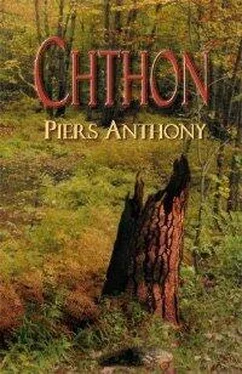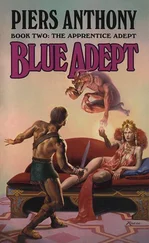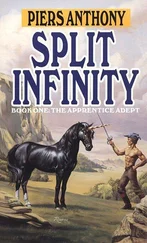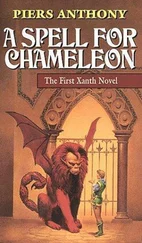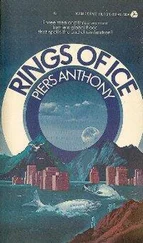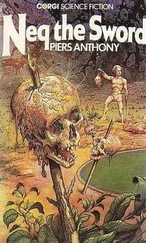Piers Anthony - Chthon
Здесь есть возможность читать онлайн «Piers Anthony - Chthon» весь текст электронной книги совершенно бесплатно (целиком полную версию без сокращений). В некоторых случаях можно слушать аудио, скачать через торрент в формате fb2 и присутствует краткое содержание. Город: 1967, Издательство: Ballantine, Жанр: Фантастика и фэнтези, на английском языке. Описание произведения, (предисловие) а так же отзывы посетителей доступны на портале библиотеки ЛибКат.
- Название:Chthon
- Автор:
- Издательство:Ballantine
- Жанр:
- Год:неизвестен
- Город:1967
- ISBN:нет данных
- Рейтинг книги:5 / 5. Голосов: 1
-
Избранное:Добавить в избранное
- Отзывы:
-
Ваша оценка:
- 100
- 1
- 2
- 3
- 4
- 5
Chthon: краткое содержание, описание и аннотация
Предлагаем к чтению аннотацию, описание, краткое содержание или предисловие (зависит от того, что написал сам автор книги «Chthon»). Если вы не нашли необходимую информацию о книге — напишите в комментариях, мы постараемся отыскать её.
Nominated for the Hugo Award for Best Novel in 1968.
Chthon — читать онлайн бесплатно полную книгу (весь текст) целиком
Ниже представлен текст книги, разбитый по страницам. Система сохранения места последней прочитанной страницы, позволяет с удобством читать онлайн бесплатно книгу «Chthon», без необходимости каждый раз заново искать на чём Вы остановились. Поставьте закладку, и сможете в любой момент перейти на страницу, на которой закончили чтение.
Интервал:
Закладка:
Now he understood the second reason, more basic, and lacking the trappings of social convention. For to the minionette, pleasure was pain, pain was pleasure. She had responded to a visitor of her world who had been torn by sorrow and self-hate—Aurelius—because his child, in living and dying, had murdered his beloved. The minionette had loved Aurelius because she found his tremendous guilt and sense of betrayal irresistible. He was in mourning for the daughter of Ten, yet found Malice attractive, and fiercely condemned himself for this, and thus conquered her and defeated himself, unknowingly.
She had accepted the ceremony of his culture, which meant little to one who was emotionally telepathic, but without the exchange of the hvee, because his guilt could not permit that honest token. She had gone with him, delighted also by the joy of his alarm over the proscription that he was violating. Neither one of them had known, then, the reason for proscription.
On Hvee she had conceived his child. As they came to know each other more thoroughly, his agony diminished, and gradually he came to love her without guilt. Then she understood their peril—too late. She birthed his child and deserted him, because a longer stay could only have entailed far greater agony for them both. Her continued love would have destroyed him, simply because she was what she was. Because she did love him in her fashion, she could not bring herself to hurt him in the ways her culture demanded. A man of Minion would have understood, but not Aurelius.
Her son had grown up with such hate for the memory of the wayward mother that he had rejected his knowledge of the facts and had chosen to remember only the mother he wished he had had. No one could have told Aton the truth prematurely. He had been blind.
More: the very hurt and rage he nurtured became her own delight, for she was the minionette. She could read the hate in him, even as a child who did not know her, and it was the ideal emotion for her species. Oh, yes, she kissed him, enraptured by his confusion, and sent him home before that wonderful emotion faded. When she met him at fourteen she had done it again; his guilt and frustration at what he suspected was wrong were sufficient.
When he had searched her out aboard the carefully chosen Jocasta —which only now did he comprehend as the signal it was, intended to guide him to her when he was mature enough to understand—her dilemma intensified. He had come too soon; but he had been raging with the compellingly appealing frustrations, and she could not hold herself away. The game had gone on, bringing her further into his orbit: his horror of the Taphid cargo, his cold anger at the leverage her exposure of his lay roster provided her, his grief over the woman he thought he had lost. Until the crafty Xests, themselves semi-telepathic, had penetrated her ruse and left her helpless against the naïve love of her son.
She had gone with him, since he was not to be resisted, and her position with the merchant service was already forfeit. She had gone with him although she still did not know how to handle the coming crisis. She could not tell him the truth, since that would have sent him away forever—but neither could she submit to the passionate embrace he had in mind. She could not stay and she could not leave.
Thus, at the point of no return, the silence. Only in this way could she keep him close yet distant, until some more permanent alternative offered itself.
Thus Aton rationalized, now but not in the past—and found that even this was not enough. His imagination was fighting desperately to protect him from full realization. His mind had blanked the entire episode from memory as long as it could, and now gave ground unwillingly. He had to search out the evil, knowing it was there, knowing that he was not yet mature enough to face it.
The spotel episode had not been concluded. The two of them had to play it out, past and present, until the full reason for his torment lay exposed.
The secret was out: Aton was in love with his mother. Start with that, and go back. Relive it—if you can.
Back—as she had known he would, he reacted to the news with anguished indecision. The thing he had dreamed of could not be. Sweet as his emotion might be to her perception, brightening her lovely hair, it was a hollow luxury. He would go and never meet her again. He would spare her.
How little he understood the minionette!
Nude, as she remained after he had doffed the space suit, she beckoned him. “Aton,” she said. She was absolutely beautiful.
He came to her, as he always had, embarrassed for his thoughts as much as for the situation. It hurt him terribly to lose her, for she had lived—as a woman—in his fond imagination since the first forest encounter.
“Aton,” she repeated. “On Minion”—this, at the spotel, had been the first time he had heard the name of her home planet, and the name alone had stayed with him—“on Minion our culture is not like yours. I was wrong to go away with the outworlder, but I was young then and did not understand.” She took his hands in the familiar gesture. “Aton—on Minion the women live a long time, many times the life span of the men. The minionette outlives her first mate, if he is not soon executed, and then belongs to her closest of kin. By him she will bear another kin, and later yet another, from one generation to the next, until at last she is too old and has to birth a daughter. This is our way.”
Aton kneeled dumbly before her, his two hands prisoners to hers. What was she trying to tell him?
“Aton, you are half minion, and you are my kin.”
The horror of it began to force itself upon him, then. “You are my mother—”
“Yes. That is why this must be. That is the reason I came to you so early in the forest and gave you the melody and the hvee—so that you would know in your spirit what you could not know from your book. That you are minion, born to possess the minionette. You must do this, and your son after you, because it is in your culture and in your blood—your minion nature.”
Fighting what he knew now was the truth, Aton suffered a greater shock. For though the culture he understood forbade this thing utterly, he had, in an inversion that paralleled her emotional one—that he had not known about, then—grown up to believe her to be the most desirable of women. Because she had been, according to his incomplete knowledge, no relation to himself.
Now he knew that she, by beliefs of his own that were fundamental, was forbidden. And he found her—
Found her still the most compellingly desirable woman he could imagine. She had offered herself to him—and he wanted her, physically, more than ever before. That was what upset him most.
“Until this moment,” she said, “you were not ready, Aton. I had to wait a very long time to win you.” She relaxed on the couch, splendid in repose, pulling him with her. The living flame of her hair spread in and out, over face and shoulders and perfect breast, highlighting her body. Black-green eyes, so near to his, opened in deep vistas.
“So long a time,” she said. “So lovely. Kiss me, Aton, and come to me. Now, Aton—now!”
Fourteen
The day was turbulent. They rose together and left the garden shed, walking in the wind.
“Why did you let me discover your identity, at the spotel?” Aton asked her now. “The thing you wanted—it might easily have been, if I had not known.”
“Aton,” she said, shaking her head in gentle reproach, “Have you, have you not been to Minion? Have you not seen what love, your love, will do to the minionette?”
He had allowed himself to forget.
“Your love would have killed me, as that of your father would have killed me, had it been as you imagined when you courted me,” she explained. “Only your knowledge of the truth could make you condemn. Only through that—to you, negative—emotion could you approach me physically. You had to know.”
Читать дальшеИнтервал:
Закладка:
Похожие книги на «Chthon»
Представляем Вашему вниманию похожие книги на «Chthon» списком для выбора. Мы отобрали схожую по названию и смыслу литературу в надежде предоставить читателям больше вариантов отыскать новые, интересные, ещё непрочитанные произведения.
Обсуждение, отзывы о книге «Chthon» и просто собственные мнения читателей. Оставьте ваши комментарии, напишите, что Вы думаете о произведении, его смысле или главных героях. Укажите что конкретно понравилось, а что нет, и почему Вы так считаете.
